IBM
Latest

IBM's tiniest computer is smaller than a grain of rock salt
IBM has unveiled a computer that's smaller than a grain of rock salt. It has the power of an x86 chip from 1990, according to Mashable, and its transistor count is in the "several hundred" thousand range. That's a far cry from the power of Watson or the company's quantum computing experiments, but you gotta start somewhere. Oh, right: it also works as a data source for blockchain. Meaning, it'll apparently sort provided data with AI and can detect fraud and pilfering, in addition to tracking shipments.

Tribeca Games returns with a dive into ‘Shadow of the Tomb Raider’
Last year's Tribeca Film Festival included a companion festival all about gaming and this year sees the return of Tribeca Games. During the 2018 festival, which runs from April 18th through 29th, Tribeca Games will give attendees behind-the-scenes looks at the upcoming Shadow of the Tomb Raider and God of War reboot as well as a League of Legends tournament.
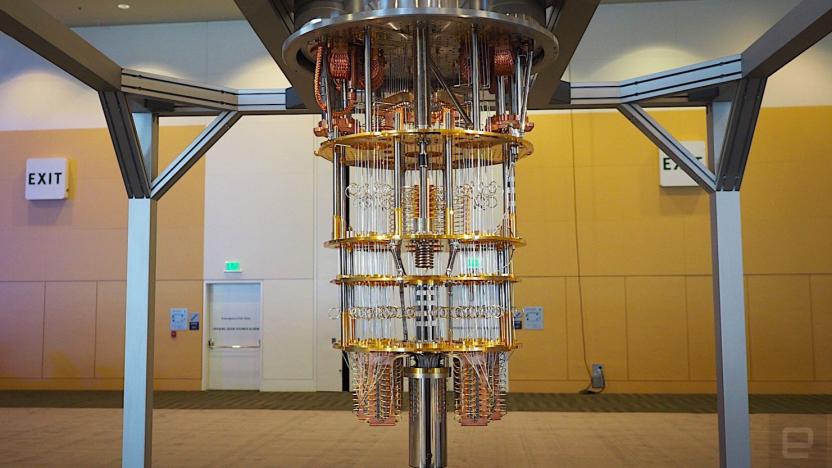
Not even IBM is sure where its quantum computer experiments will lead
Despite the hype and hoopla surrounding the burgeoning field of quantum computing, the technology is still in its infancy. Just a few years ago, researchers were making headlines with rudimentary machines that housed less than a dozen qubits -- the quantum version of a classical computer's binary bit. At IBM's inaugural Index Developer Conference held in San Francisco this week, the company showed off its latest prototype: a quantum computing rig housing 50 qubits, one of the most advanced machines currently in existence.

How security became more important than convenience
Since the dawn of infosec, the belief that we users are a group of dullard cattle who blindly trade our own security for convenience at every turn has been trumpeted by the stewards of IT and the infosec-arrogant, while bolstered by old research. Not anymore, says a new in-depth study from IBM on consumers' relationships with biometrics, authentication and the future of identity. If they have a choice, consumers now prefer taking extra security steps over using "123456" as a password.

IBM is sending Watson to the Grammys
After winning Jeopardy and designing cancer-treatment plans, IBM Watson is now strutting off to the red carpet of the 60th Annual Grammy Awards. The tech giant's versatile AI system will be curating and distributing award-show content and images of everyone's favorite music stars in real time, straight from the red carpet to people's social media feeds.

IBM researchers use AI to predict risk of developing psychosis
IBM's Computational Psychiatry and Neuroimaging research team has been working on a way to use machine learning to predict the risk of developing psychosis and it just published a second study that shows AI might be a valuable tool when it comes to mental health assessment.
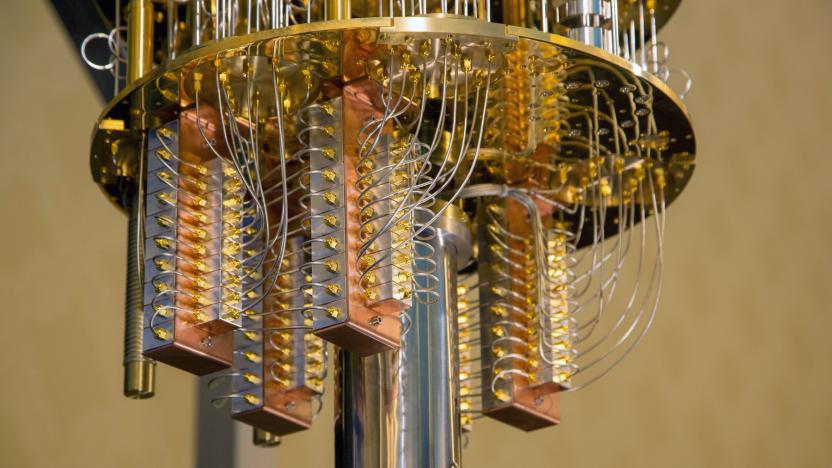
This is what a 50-qubit quantum computer looks like
From afar, it looks like a steampunk chandelier. An intricate collection of tubes and wires that culminate in a small steel cylinder at the bottom. It is, in fact, one of the most sophisticated quantum computers ever built. The processor inside has 50 quantum bits, or qubits, that process tasks in a (potentially) revolutionary way. Normally, information is created and stored as a series of ones and zeroes. Qubits can represent both values at the same time (known as superposition), which means a quantum computer can theoretically test the two simultaneously. Add more qubits and this hard-to-believe computational power increases. Last November, IBM unveiled the world's first 50-qubit quantum computer. It lives in a laboratory, inside a giant white case, with pumps to keep it cool and some traditional computers to manage the tasks or algorithms being initiated. At CES this year, the company brought the innards -- the wires and tubes required to send signals to the chip and keep the system cool -- so reporters and attendees could better understand how it works. The biggest challenge, IBM Research Vice President Jeffrey Welser told me, is isolating the chip from unwanted "noise." This includes electrical, magnetic and thermal noise -- just the temperature of the room renders the whole machine useless.

A Nanjing Massacre survivor's story lives on digitally
On the morning of December 13th, 1937, Japanese troops pounded on the door of Xia Shuqin's family home in Nanjing, China. Thirteen people had taken shelter under this particular roof: Eight-year-old Xia, her mother and father, two grandparents, four sisters (one, four, 13 and 15 years old), and four neighbors. The Japanese army had ridden into the city on horseback that morning and faced little resistance; the Chinese army had made a full, chaotic retreat the prior evening, December 12th. When Xia's father answered the door, the Japanese soldiers immediately shot and killed him. They bludgeoned and killed her one-year-old sister. They raped and killed her mother. They killed her grandparents. They raped and killed her 13-year-old and 15-year-old sisters. And they bayoneted Xia three times in the arm and back.
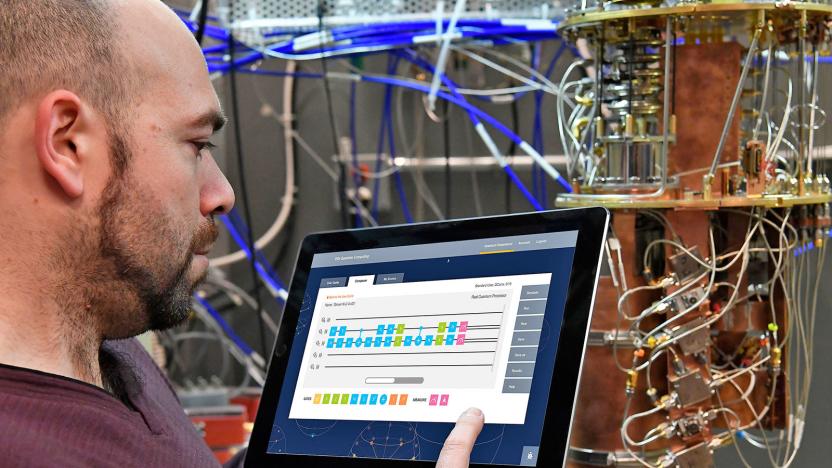
IBM's processor pushes quantum computing closer to 'supremacy'
IBM Q research has built and tested an operational 50 qubit prototype processor, a huge leap up from its previous record of 17 qubits. The company is also set to make a 20 qubit quantum system available online for clients to try, with an updated superconducting design, connectivity and packaging. That'll let users run computations with a "field-leading" 90 microseconds of coherence, allowing "high-fidelity quantum operations," IBM says.

Tech companies file briefs supporting challenges to DACA withdrawal
Major tech companies are still voicing their support for Deferred Action for Childhood Arrivals (DACA), a program that protects undocumented immigrants that came to the US when they were children. President Trump decided to end DACA protections in September and while tech companies spoke out in support of DACA prior to and following that decision, many have now filed a document backing those that are challenging the president's move in court.

Microsoft and Facebook's open AI ecosystem gains more support
Artificial intelligence has helped jump start everything from self-driving cars to soft robotics. As if that wasn't enough, it's also tearing down language barriers to bring the world closer together. But, at the same time, machine learning is dealing with its own, self-constructed walls. Last month, Facebook and Microsoft came together to target a major roadblock -- specifically the process of switching between machine learning frameworks, such as PyTorch and Caffe2. Their solution: An open-source AI ecosystem dubbed ONNX (or Open Neural Network Exchange), which allows developers to jump between AI engines at various stages of development. The tech titans claimed the Exchange would make machine learning "more accessible and valuable for everyone." And, they've apparently had no qualms in recruiting other big-name firms to help out. The latest additions to ONNX include IBM, Huawei, Intel, AMD, Arm, and Qualcomm -- companies that (to varying degrees) are also working within the field of AI.

Gundam fans can bring home a lifelike Haro next year
Gundam fans will no doubt recognize this adorable Haro robot from the anime, as did I on the CEATEC show floor in Tokyo. As it turns out, Bandai, Bandai Namco, IBM and VAIO have joined forces to bring us a lifelike "Gundam Concierge Haro" aka "Gansheruju Haro" -- including a 19 cm-wide spherical body (pretty much the size featured in the original series), a variety of gentle movements (bobbing and spinning), glowing eyes and mouth, extendable arms and legs plus a pair of subtly flapping ears. Better yet, if you're fluent in Japanese, you'll be able to have Gundam-related conversations with Haro, courtesy of IBM's AI software.
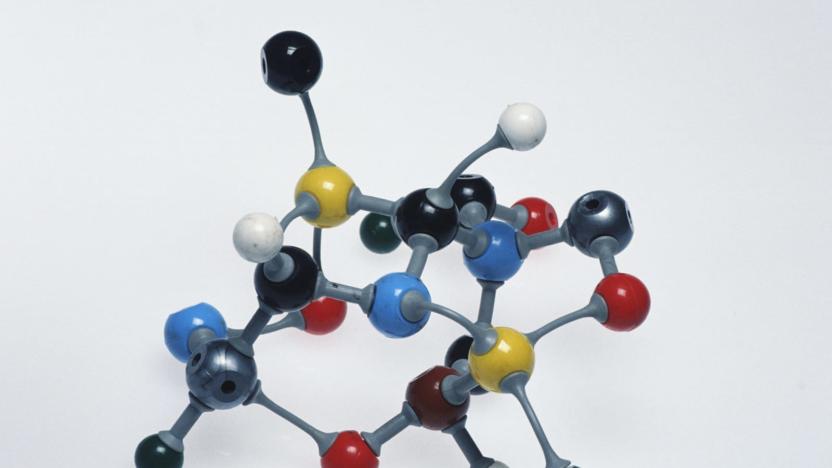
IBM's simulated molecule could lead to drug and energy advances
IBM's quantum computer has made a small advance that could ultimately lead to a major chemistry breakthrough. A team of IBM researchers has successfully used IBM Q to accurately simulate the molecular structure of beryllium hydride (BeH2), the largest molecule ever to be simulated by a quantum computer to date. This is pretty important, because simulating any molecule on a quantum level is no easy task, never mind a big one.
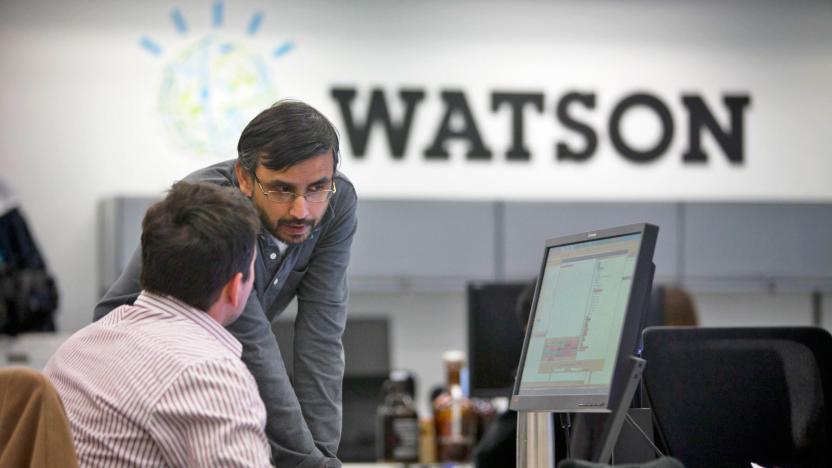
IBM is installing a Watson AI lab at MIT
Both MIT and IBM are leaders in the field of Artificial Intelligence and now they're teaming up. IBM announced on Thursday that it had reached a 10-year research partnership agreement with the university worth nearly a quarter of a billion dollars. That investment will see more than 100 researchers from both organizations collaborating to advance four key focus areas within the AI field.

IBM is teaching AI to behave more like the human brain
Since the days of Da Vinci's "Ornithoper", mankind's greatest minds have sought inspiration from the natural world for their technological creations. It's no different in the modern world, where bleeding-edge advancements in machine learning and artificial intelligence have begun taking their design cues from the most advanced computational organ in the natural word: the human brain.
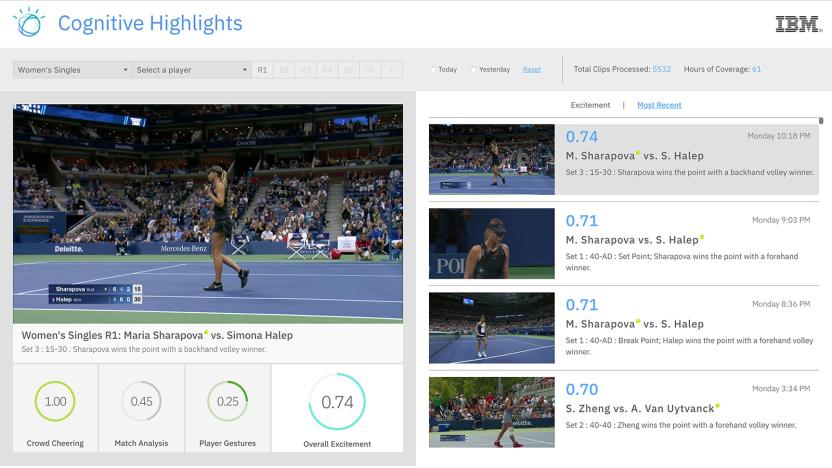
IBM's Watson is creating US Open tennis highlight videos
When it's not busy healing America's broken criminal sentencing system, Watson is creating highlight videos of tennis matches. That's probably one of the things one could say if IBM's AI system were human. The tech titan has just launched a suite of Watson-powered AI solutions for its enterprise customers, and the US Open is already using one of them to generate highlights of its matches. IBM calls the suite "Watson Media," and the US Tennis Association is using one of its features called "Cognitive Highlights."

Watson is helping heal America's broken criminal-sentencing system
The American criminal-justice system's sentencing system is among the fairest and most equitable in the world ... assuming you're wealthy, white and male. Everybody else is generally SOL. During the past three decades, America's prison population has quadrupled to more than 2.3 million people. Of those incarcerated, 58 percent are either black or Latino (despite those groups constituting barely a quarter of the general US population). The racial disparity in America's justice system is both obvious and endemic, which is why some courts have started looking for technological solutions. But can an artificial intelligence really make better sentencing recommendations than the people who designed it? We're about to find out.
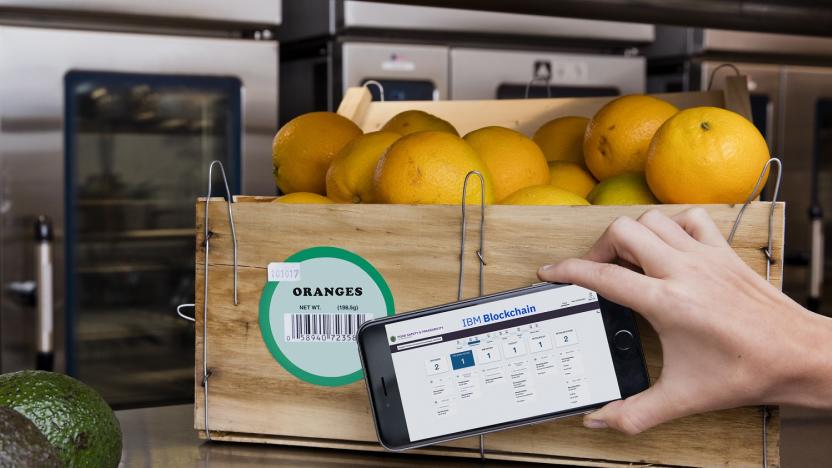
Suppliers and retailers will use blockchain to keep food fresh
IBM has joined with a group of food supply companies and retailers to use the computing company's blockchain tech to keep food fresh. Currently, it can take up to two weeks to track down the source of contaminated foodstuffs. But just like tracking cryptocurrency transactions all over the world, this consortium will harness IBM's enterprise blockchain services to give its members access to a constantly-updating ledger of food, from source to store.

After Math: Do you see?
It was an illustrative week for machine vision. Sony's high-speed eyes allow robots to see at 1000 FPS, IBM trained a neural network to spot schizophrenia, and MIT's AI knows what's in your meal just by looking at it. Numbers, because how else do you measure your myopia?

Plastic-plucking robots are the future of recycling
We are living in the Age of Plastic. In 2015, the world's industries created 448 million tons of it -- twice as much as it did in 1998 -- and the rate of production is only accelerating. However, our recycling efforts have not matched pace. In fact, according to the EPA, barely 14 percent of plastic products are recycled globally. But a new generation of recycling technology is here to keep the world's plastics in circulation and out of our landfills.











